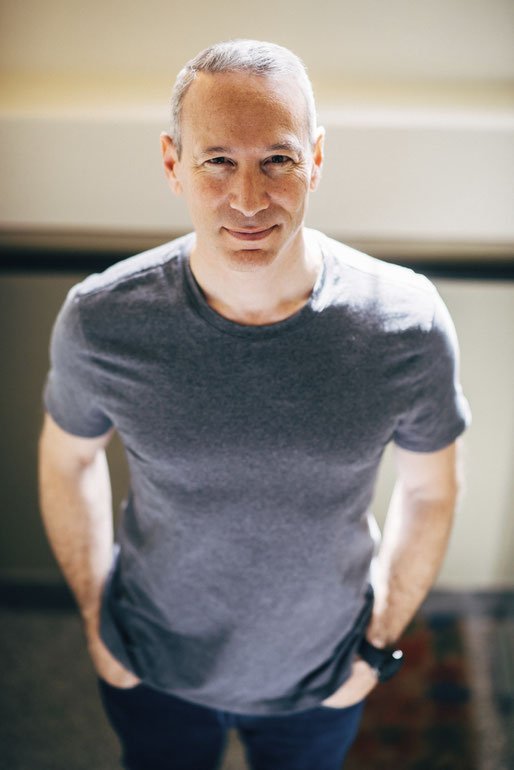Instead of an official introduction, what kind of books do you think people interested in disruption, digital transformation and insurtech should read?
The book I’m excited about now is “Everyone Lies” by US data scientist Seth Stephens‑Davidowitz (Note of the Editor: the book is available for example in the US, in Germany, in the UK, in France, in Spain). He analyzed anonymous Google search results, and his results are compelling. A lot of what we’ve learned about why people are dishonest, and what sparks them to lie, is fascinating for us at Lemonade.
At the beginning Lemonade was admired for the exquisite user experience, but out of my personal experience in board rooms of incumbents, a lot c-suits did not take Lemonade seriously as competition. Did that change after you became the number one insurance with almost 30% market share among first time renters insurers buyers in New York – the in my opinion most important KPI in the sale of insurance?
Since our launch we’ve seen the incumbents reacting to Lemonade. In fact, I wrote a post titled “Who’s The #1 Lemonade Copycat” because some traditional insurers attempted to knock off parts of Lemonade’s product, marketing, and brand in ways that were kind of amusing. Looks like they’re watching what we do very closely.
Within only a few months Lemonade changed the global insurance industry. Not by conquering a large market share but by example. To some it seems that out of nowhere Lemonade appeared and demonstrated that it is possible to provide customer data and tech driven insurance products with a modern user experience they are used to from other industries. You achieved this with a team smaller than most IT departments managing a few legacy systems. Were you surprised by this success and this attention?
The reception has been more than we could have hoped for. When we launched Lemonade over a year ago, we had no idea how we would be received. It was obvious that insurance had to be fundamentally reinvented – every part of it – but we didn’t know if our product, business model, and brand would resonate. They have! Take a look at this video: when we saw policyholders tweeting about Lemonade, we set out to meet them and hear what made them take to social media to profess their appreciation. Who knew that would be commonplace? People tweeting about insurance?
Right now you are rolling out Lemonade in the US and improve the product portfolio. What is your goal? Conquering the world or just the US?
We dream big. That’s the only way to truly instigate change. For now we’re focused on going nationwide across the US, but stay tuned for more.
I (as a former Allianz employee) was not surprised that Allianz invested in you. Does that mean you will never come to Germany or Europe to disrupt the industry here?
No, it doesn’t mean that at all!
From the outside Lemonade skyrocked and changed the insurance industry forever. Looking two years back: What did not go as you planned?
We didn’t know a lot; we knew that in order to change the insurance industry forever we’d have to take the longer road of becoming a full-stack insurance carrier, rather than a brokerage or comparison platform. It isn’t enough to change the design and sprinkle in some technology. We launched with “the world’s first peer-to-peer insurance company” which was well received, but not well understood. So we dropped it. P2P means different things to different people, and it was creating more confusion than necessary. In underwriting, we learned how to balance our portfolio and we’re still learning. What risks should we be taking, where we should be cautious? We intentionally declined many homeowners because we felt it was too risky for such a young company, and we’re studying how we can accept more going forward.
When Elon Musk founded Tesla he was asked critically if he now wanted to 800.000 thousand employees in order to take on the world leading car producers. He answered: “No, I am only going to hire the 800 best”. It is being said, that he actually did exactly that. So what is your hiring philosophy and strategy?
Scaling a company doesn’t mean scaling in human resources. Elon Musk is spot on when he wants only the best. Part of Lemonade’s agility is due to the fact that we’re a small company; decisions are made quickly and executed rapidly. Shai and I can casually chat about a certain feature, and it will take sometimes a handful of hours from it to go from ideation to creation to production.
When we talked a few month ago you said, that after 6 months applying your (big) data driven approach, you needed to confess that you were not as precise in analyzing risk as the incumbents. But you were confident you would be better than most incumbents who have been around for 100 years, after 12 months. The 12 months are almost over now. What is the state of your advanced data and risk analysis?
The data we now have is remarkable by the standards of the industry. It is rich, textured, deep and precise. Our data infrastructure is complete – but it will take time for more claims to come in to fully populate it.
Considering your success as a founder: What would you advise young but also seasoned people in and outside the insurance industry that plan to found a start-up? What are your 3 do’s and don’ts?
Both Shai and I are veterans of the tech ecosystem and knew nothing about insurance when we first started. It’s precisely that outlier, tech-focused perspective that we brought to the insurance industry. It’s extremely difficult to change foundations from within an organization or an industry. When you know too much about a certain subject, that can bind your imagination and cap your creativity. It restrains you from taking that impossible route. So if you’re looking to change or evolve your own organization, I’d say: get an outsider’s perspective. Think big, and don’t let any conventional wisdom tie you down.
What would you recommend c-suits of incumbent insurers should do, if they want to stay relevant in the midterm?
If we knew how to reinvent incumbents, we wouldn’t have started an insurance company from scratch – we’d have sold tools to the incumbents. Frankly, it’s genuinely difficult to reinvent a company once it reaches the size of today’s insurers, and I wouldn’t know how to.
Do you think the big tech companies as Google, Apple, Samsung, Amazon and Facebook will seriously enter the insurance and finance industry and make life hard for start-ups due to their deep pockets?
Google and Facebook are already making vast amounts of money on insurance – by selling their ads. I doubt they could make any more by selling their own insurance. As for commerce sites like Amazon and others – time will tell.
Last question: Please describe insurance in 10 years with 3 words.
Instant. Transparent. Good.
Thank you for your time!








